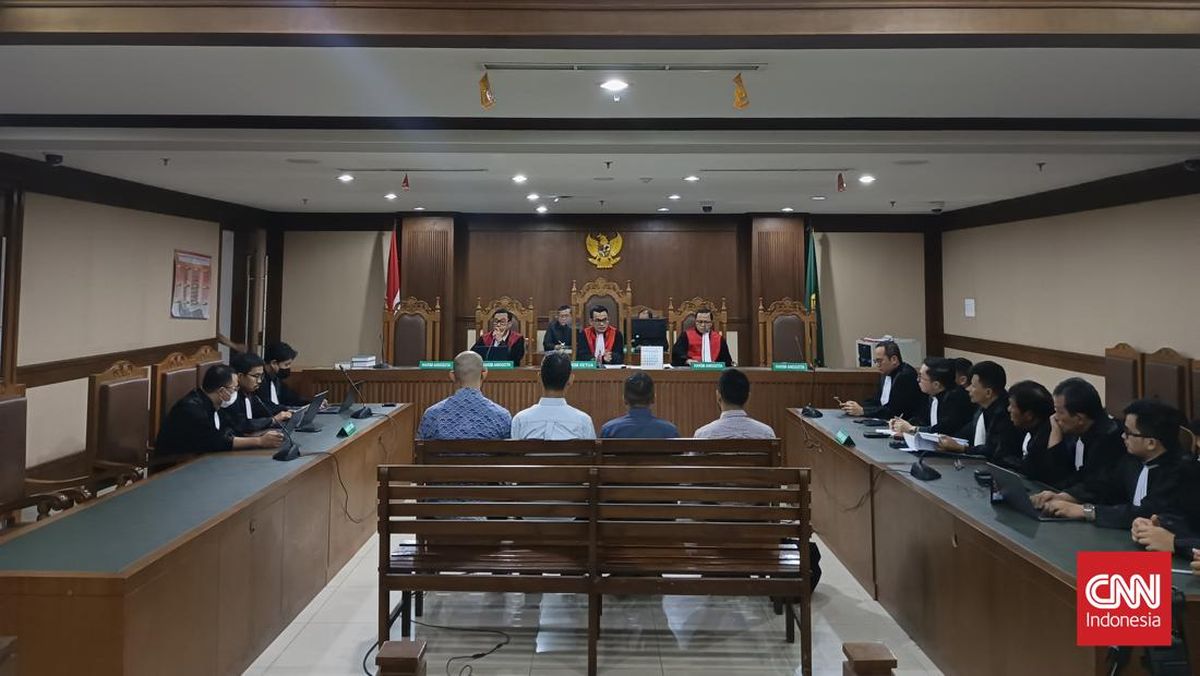The timing for Bill Gates’ volte-face on climate could probably have been better.
As Hurricane Melissa made landfall in Jamaica having been supercharged in superheated Carribean waters, Gates published a memo arguing that global warming, a cause that has been central to his philanthropy for decades, “is not the biggest threat to the lives and livelihoods of people in poor countries, and it won’t be in the future.”

Bill Gates warns that prioritising the fight against rising temperatures above all else means that issues such as human health and equality risk being overshadowed.Credit: Bloomberg
By the time his memo was being debated in climate circles, about 750,000 people in Jamaica – GDP per capita $US7486 ($11,335) – had been evacuated.
In his memo, named “Three Tough Truths About Climate” and written in the run-up to the coming COP climate talks in Brazil, Gates argues that climate change is a “serious problem” but not a civilisation threat, and that while it should be addressed, the world should carefully measure the resources it devotes to climate, and consider whether they have been efficiently and effectively spent in measurably improving or saving human lives.
He was optimistic, he said, that innovation and new technology in energy production and agriculture, could save us from the worst impacts of climate change, and efforts to limit warming are already having an impact.
Loading
He again called for what he calls the “Green premium” – which is to say that he wants to see the cost of clean tech to be made as cheap or cheaper than fossil alternatives.
Gates’ argument, which was at once reported around the world, has resonated not only because having spent more money than nearly any other single person on Earth in seeking to reduce human suffering, he has a credible voice in the field, but also because he offered a positive view in a relentlessly dark field.
As far back as 2021, Professor Michael Mann, one of the world’s most influential climate scientists and communicators, co-creator of the famous “hockey-stick graph” which showed the sharp rise in global temperatures since the industrial age, argued that climate “doomism” was a dangerously paralysing force.
Having read Gates’ argument, Climate Council chief executive Amanda McKenzie observed that the bleak nature of climate communications was a perennial problem for advocates.
“The reality that we’re facing is very scary, and so people would prefer to see a more optimistic view of the world, but I think it’s important to be very realistic about the challenges that we face and prepare for them, and use that as a motivation for the scale of action required.”
Loading
McKenzie says that after the government released its climate risk assessment for Australia in September she was asked several times if it might not have been better to withhold some of the data for fear of scaring people.
“What would you leave out?” she wondered on Wednesday. “Would you leave out the sea level rise data because that’s a bit scary. Leave out the heat data? The fire data?”
She is also concerned that Gates’ argument ignored what the Australian risk assessment refers to as the “complex and compounding” nature of climate change. Climate impacts will not exist in isolation of the concerns Gates raised about poverty and disease, but will compound those problems.
And she says that Gates’ argument that “People will be able to live and thrive in most places on Earth for the foreseeable future” is neither particularly reassuring nor factually correct. A warming of 3 degrees, which Gates acknowledged we are presently on track for, would make human life impossible in many parts for the world.
Similarly the author and scientist Tim Flannery says that by focussing on technical solutions Gates sidesteps the other hurdles that are preventing us from properly tackling climate change, particularly in light of the Trump administration’s attack on climate science and green industries.
“He’s totally ignoring the political forces that are aligned at the moment to give fossil fuels a new lease on life through political bullying, through subsidies, through disinformation campaigns.”
The world is better off for Gates says Flannery, but not the climate debate.
Mann, whose most recent book Science Under Siege engages on the topics Gates raised, is far more scathing.
“If it was shown to me unsigned and I was asked who wrote it, I would have said professional climate denier Bjorn Lomborg,” he says via email.
“I’m the first person to say that climate doomism is misguided and unhelpful, and that urgency must be paired with agency. But Gates it not providing an optimistic way forward. He’s simply presenting dismissiveness disguised as optimism.”
Mann describes the memo as a litany of “soft denial tropes” – arguments suggesting that climate change is not that bad, that we can adapt to it, that it is a distraction from other more pressing problems.
“It is complete rubbish.”
Get the day’s breaking news, entertainment ideas and a long read to enjoy. Sign up to receive our Evening Edition newsletter here.
Most Viewed in Environment
Loading


















































